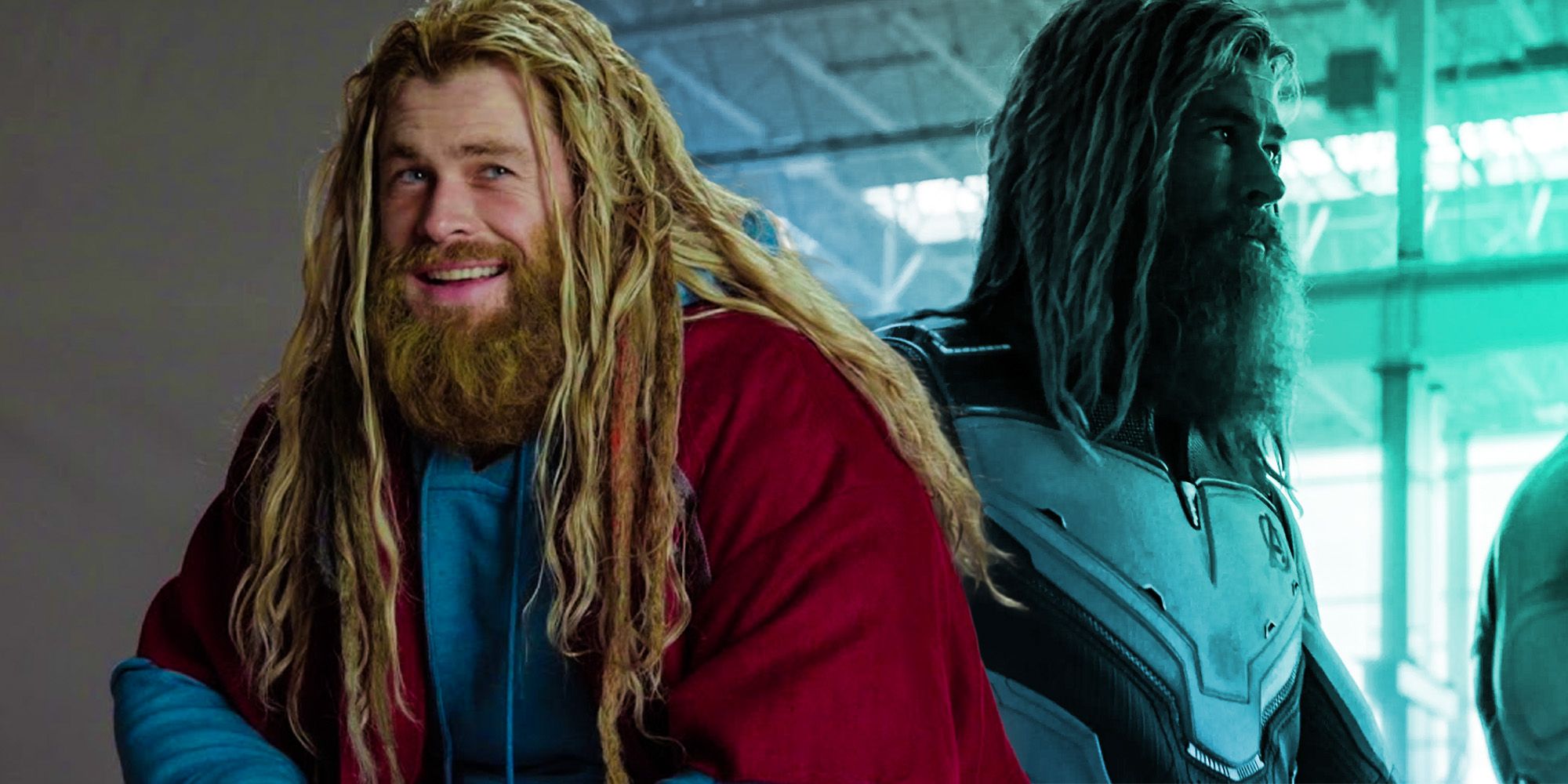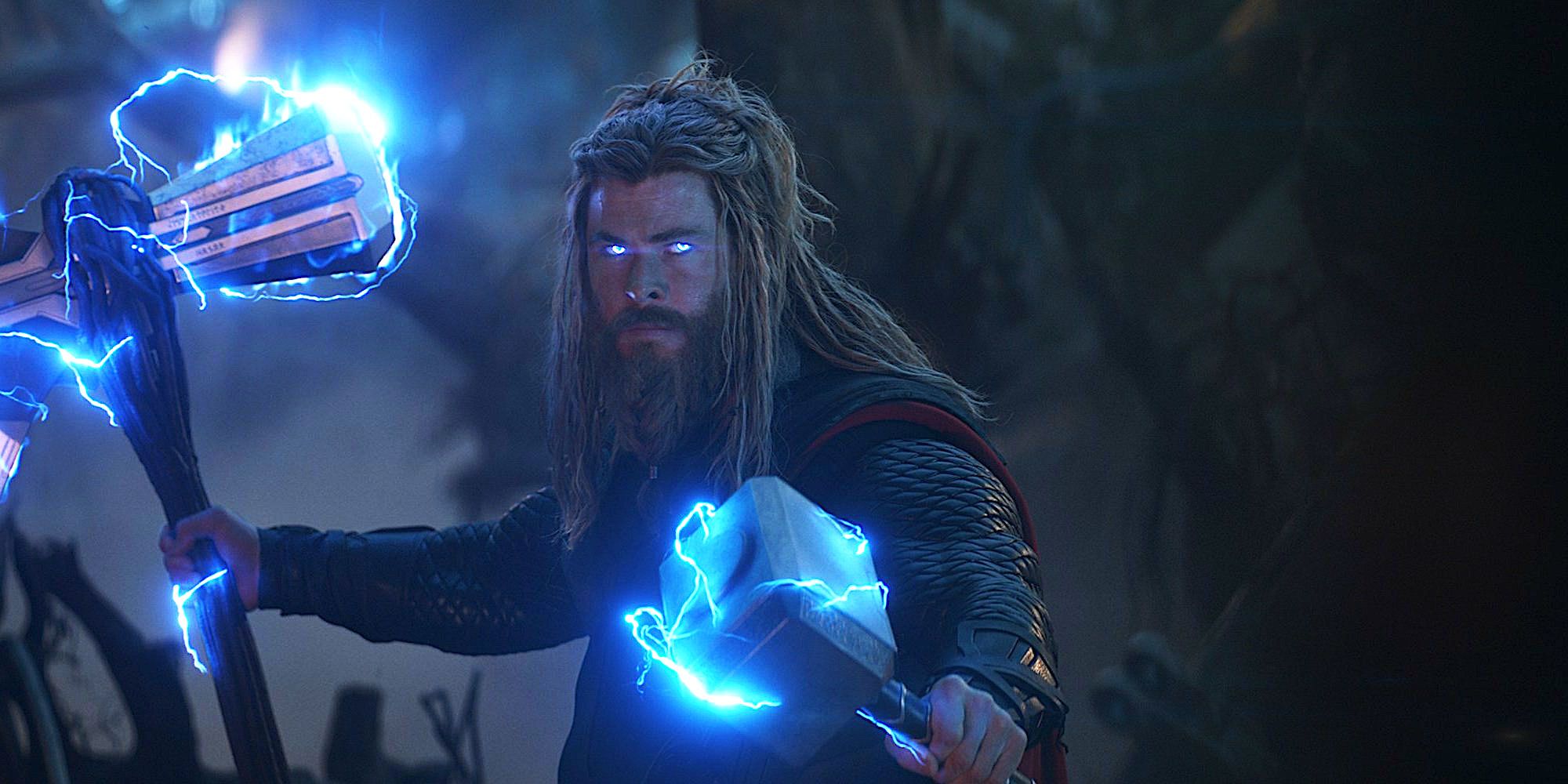Fat Thor Shouldn't Be The Superhero Exception (Or A Joke)

The God of Thunder's appearance in Avengers: Endgame, dubbed "Fat Thor" by viewers, should be a regularity in the Marvel Cinematic Universe, rather than the exception. The 2019 film from Anthony and Joe Russo marked Chris Hemsworth's eighth installment playing Thor in the franchise. Until then, the Asgardian was portrayed as one of the most physically fit members of the Avengers team. However, that changed when the group failed to stop Thanos from erasing half of the universe's inhabitants in Avengers: Infinity War.
At the start of Thor's journey in the MCU, he was an overly confident son of Odin focused on ascending to the throne of Asgard. The God of Thunder then got a lesson in humility when his father exiled him to Earth with the inability to wield his magical hammer Mjolnir until he was worthy. In time, Thor learned what it took to be a selfless hero as he helped fight villains like the Chitauri army, Dark Elves, Ultron, Hela, and of course, Thanos. Over the course of Thor's arc thus far, the character has been given various alterations to his appearance. Most of the time, the change came in the form of the superhero's costume, but in Endgame, Thor's entire physique was transformed.
In the five-year gap following the Avengers' failure in thwarting Thanos' plan, Thor put a lot of the blame on his own shoulders. While living in New Asgard, he let himself go, becoming overweight while allowing his hair and beard to grow out of control. Hemsworth's appearance was intended to showcase Thor's battle with PTSD and depression, but his drastically different look also became the target of jokes. Though the figure provided some comic relief in terms of dialogue, his struggle with weight and alcoholism played into the bigger picture in the guilt felt by the surviving Avengers. Equally important, Fat Thor's presence proved that someone that looked like him should be a welcomed addition to the world of superheroes. On the surface, Hemsworth's Endgame appearance might be viewed as an exception when it comes to prominent figures in the film series, but that should no longer be the case.

Throughout the MCU and similar franchises, there's been a specific standard affecting the perception of what superheroes should look like. Whether mental health is a factor or not, characters with extraordinary powers are always in near-perfect physical shape. That said, certain levels of physicality shouldn't be a requirement for superheroes since they will still possess special abilities while in pristine shape or not. Fat Thor proved that fact in the climactic battle against Thanos at the Avengers Compound in Endgame. Despite his extra weight, his ability to wield Stormbreaker and Mjolnir stemmed from his internal worthiness, not his appearance.
By not making Fat Thor the exception, the MCU and other superhero franchises can present healthier body image with characters of all shapes and sizes. Representation matters when it comes to casting, but varying body shapes are rarely discussed in the superhero genre. Rather than using figures like Fat Thor as the target of jokes, diverse appearances should be welcomed. While it doesn't look like Fat Thor returns in Thor: Love and Thunder, the Marvel Cinematic Universe still has plenty of time to alert the superhero ideal linked to appearance.
from ScreenRant - Feed



